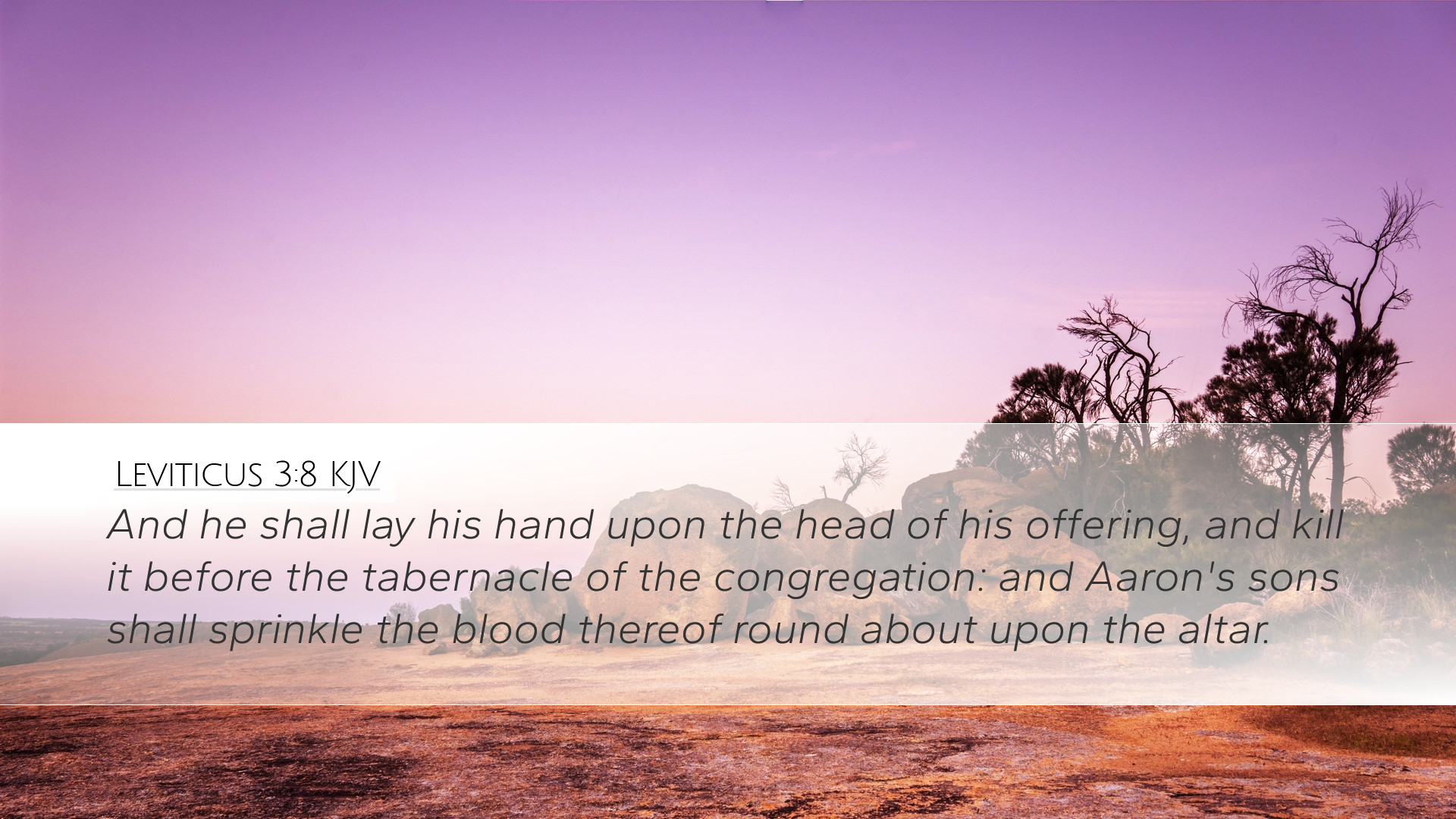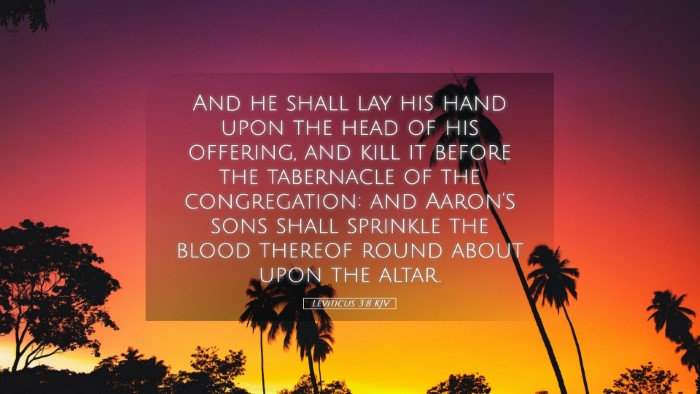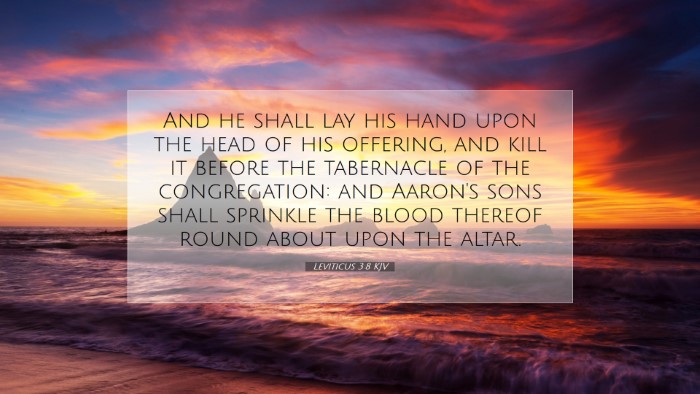Commentary on Leviticus 3:8
Verse Reference: Leviticus 3:8 - "And Aaron's sons shall burn it on the altar upon the burnt sacrifices, which are upon the wood that is on the fire: it is an offering made by fire, of a sweet savour unto the LORD."
Contextual Analysis
The book of Leviticus is a foundational text in the Old Testament that outlines the laws and regulations governing the Israelites, particularly in relation to worship and sacrifices. Chapter 3 deals with the peace offerings, a category of sacrifices that symbolizes peace between God and man, and among the people themselves. This verse is part of the instructions for the priests regarding the proper handling of these offerings.
Insights from Commentaries
Matthew Henry's Commentary
Henry emphasizes the significance of the peace offering as an act of communal worship and divine fellowship. He notes that this offering was shared, unlike the burnt offering, highlighting the relational aspect of worship. The act of burning the fat on the altar symbolizes the best portion being given to God, affirming His sovereignty over all offerings. Henry points out that this teaching directs the believer toward understanding the importance of sacrifice and dedication in their spiritual life.
Albert Barnes' Notes
Barnes elaborates on the ritualistic nature of the sacrifices and their purpose. He explains that the fat portions were particularly significant as they were considered the choicest parts of the animal. The burning of these portions on the altar creates a "sweet savor" to God, which suggests that God delights in our offerings when given in sincerity. Barnes draws a parallel to New Testament theology, where Christ is viewed as the ultimate sacrifice, fulfilling the peace offerings through His atonement to create reconciliation between God and humanity.
Adam Clarke's Commentary
Clarke adds depth to our understanding by noting the specific roles of Aaron and his sons in the sacrificial process. He highlights that the priests act as mediators between God and the people, indicating the importance of designated authority in the practice of worship. Clarke also emphasizes the communal aspect of the peace offerings, where not only the priests but also the worshipers would partake in the meal, illustrating the unity and harmony that God desires among His people.
Theological Implications
Leviticus 3:8 serves as a reminder of several theological concepts fundamental to Christian belief:
- God's Desire for Relationship: The peace offering embodies God's desire for reconciled relationships, both vertically (with God) and horizontally (with others).
- Concept of Sacrifice: The necessity of bringing the best before God highlights the principle of sacrifice in worship, which is a recurring theme throughout scripture.
- Role of the Priesthood: The involvement of Aaron's sons illustrates the importance of mediators in the relationship between God and man, pointing forward to the ultimate High Priest, Jesus Christ.
Practical Application for Worship
For pastors and worship leaders, this verse provides a significant template for approaching worship services:
- Offering Our Best: Encouraging congregations to bring their best to God, whether through material resources, service, or worship, reflects the heart of this passage.
- Fostering Community: Like the peace offering, contemporary worship should aim to build and strengthen the community of believers, celebrating together in the presence of God.
- Emphasizing the Mediator: Regularly teaching about the role of Christ as our High Priest can enhance understanding of their relationship with God, framing contemporary worship in light of biblical sacrifice.
Conclusion
In conclusion, Leviticus 3:8, while rooted in ancient Israelite practices, offers timeless truths and principles that are relevant for today's believers. Engaging with the insights provided by historical commentaries enriches our understanding and deepens our appreciation of God's intentions for worship and community among His people. Pastors, students, and scholars alike can find profound meaning in this passage, guiding them to live out their faith in tangible, sacrificial ways.


